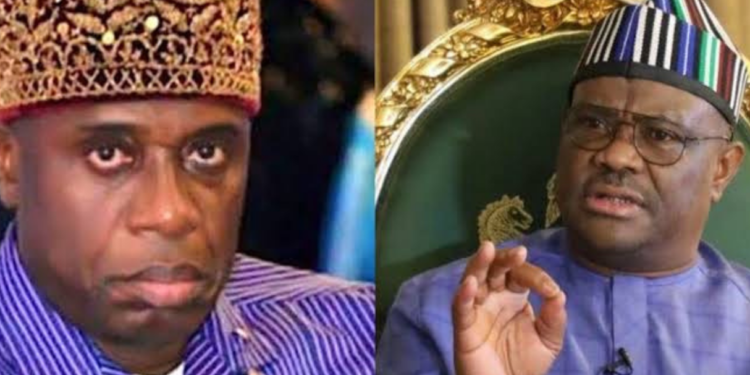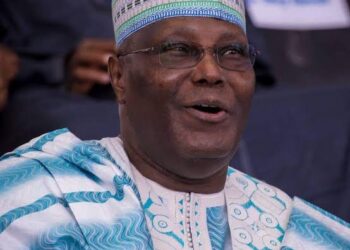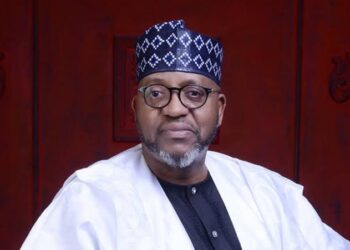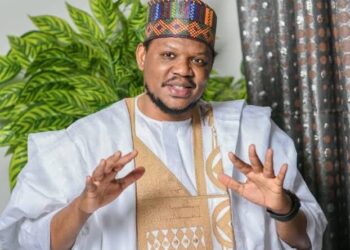Former governor of Rivers State, Rotimi Amaechi, has recently a statement regarding Nyesom Wike, who currently serves as the Minister of the Federal Capital Territory (FCT).
Amaechi asserted that Wike “passed through him” during his political journey, emphasizing the profound impact of their relationship.
In an interview, Amaechi expressed a certain reluctance to frequently mention Wike’s name, despite acknowledging the crucial role Wike played in his administration.
Wike served as Chief of Staff during Amaechi’s tenure as governor, a position that undoubtedly shaped his political trajectory.
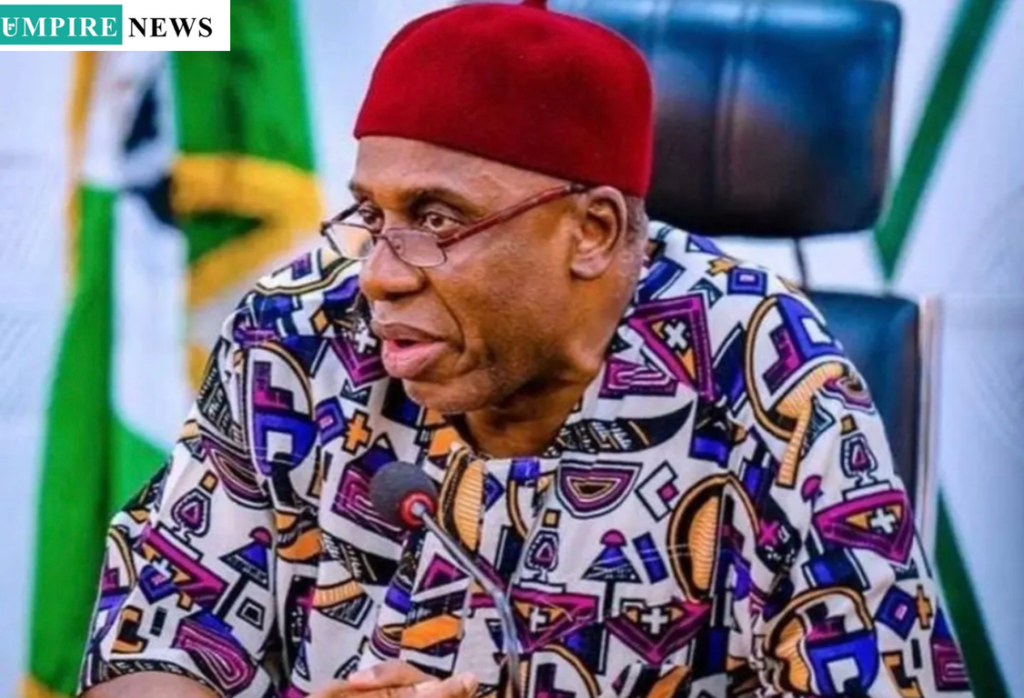
Amaechi stated, “When I became governor, Wike became Chief of Staff – but, I don’t like calling his name. Name any Rivers politician that didn’t pass through me.”
This statement highlights Amaechi’s sense of pride in his political mentorship and the influence he has had on the careers of various politicians in Rivers State.
Reflecting on his early political career, Amaechi recalled his entry into politics at the young age of 22. He described a divided political landscape characterized by two prominent camps.
The first was led by Rufus George, who he characterized as “poor and broke.” In this camp, basic necessities were scarce, and supporters often faced challenges.

In stark contrast, he mentioned Abule’s camp, which was affluent and attracted numerous eager followers. Amaechi elaborated on this dichotomy, stating, “But those of us who bothered about character, because my father taught me character, stood with Rufus without knowing if we will win or not.”
He reflected on how their efforts paid off, saying, “And at the end of the day, God delivered us and we became government. He became governor and I became Special Assistant.”
Moreover, Amaechi highlighted his relationship with another prominent politician, Peter Odili, whom he supported despite Odili’s financial limitations.
He remarked, “The same thing with Odili, he didn’t have money but we stood with him because it’s about character.” This loyalty to principles over financial gain was a hallmark of Amaechi’s political philosophy, one that he believes is increasingly rare in contemporary politics.
As he concluded his reflections, Amaechi expressed concern over the changing landscape of political integrity. He noted a distinct difference between the politicians of his era and those currently in power.
He stated, “For anybody who passed through me, the first thing you learn is about honesty; if they are honest, then they have done well.”
Amaechi’s remarks not only provide a glimpse into his own political journey but also serve as a broader commentary on the importance of character in politics.
As political dynamics continue to evolve, his emphasis on integrity and mentorship may inspire future leaders to prioritize these values in their careers.


